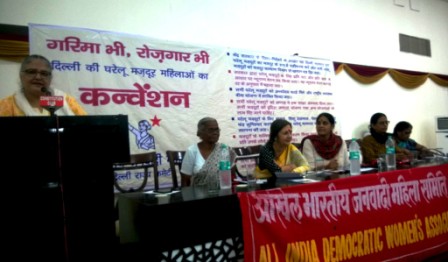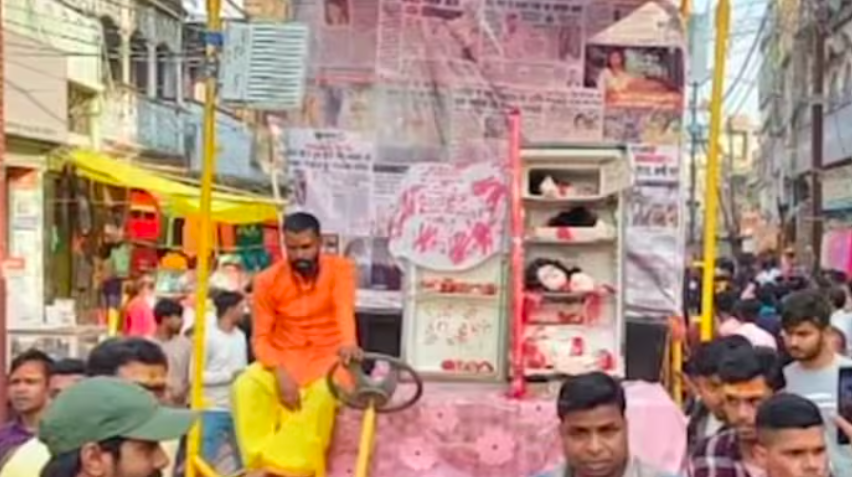Debby Rai for BeyondHeadlines
“Logon ka kaam hamare bina nahi chalta, lekin yehi log apne ghar ke toilet main humein ghusne nahi dete”, lamented Sadhna (name changed) as she vocalised her grievances at the convention of Live-out Domestic Workers organised by All India Democratic Women’s Association (AIDWA).
The Convention focused on a demand charter which deals with both issues of dignity of work and working conditions. A call was given to intensify the fight for the recognition of domestic workers and their registration as workers. It was emphasized that they should take the next step of organising themselves and fighting for the ten point demand charter released by the organisation.
Although the Government of India had signed the ILO Convention on Decent Work for Domestic Workers (2011), but even after three years, there is no comprehensive law or policy to ensure that domestic workers get their basic rights in all states.
“Even though Domestic Workers have been recognised as ‘workers’ by the Central Government and several state governments, the delhi Government has not followed the National Policy yet”, said Sehba Farooqui, General Secretary of Delhi AIDWA. She added that since domestic workers are not recognised or registered as ‘workers’, both their living and working condition has worsened in last five years.
According to Delhi AIDWA’s survey report ‘Striving for Dignity’, 46% of the women domestic workers earn a monthly income that is below the average monthly income of Rs 2877 per month. The survey also says that more than 65% of the domestic workers have no ration card and only 24% have BPL Cards.
AIDWA has therefore urged the Delhi Government to implement Central guidelines for the registration of domestic workers as ‘workers’ and be given identity cards from the Labour Welfare Department. The organisation has also demanded for Antyodaya Ration Cards and health cards under RSBY scheme, and benefits of the Indira Awas Yojana and other schemes for the workers apart from specifying the minimum wages on per hour and per job basis.









